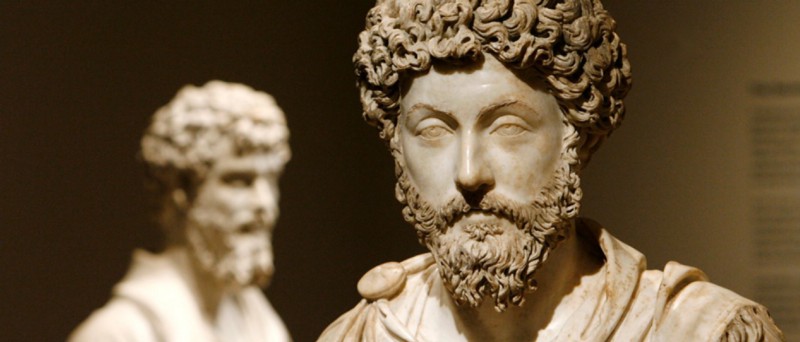Your brain on stoicism
Posted on Thu 10 July 2014 in Tech

For the last few months I've been attempting to practice Stoicism and wanted to share the effects of what regular stoic practice has had. If you've never heard of Stoicism I'd recommend fourhourworkweek.com's introduction, which is very pragmatic. Essentially, what happens after several weeks of watching your emotional reactions, evaluating what's in your control and feeling indifference to what isn't.
Certainty
The first noticeable effect was stoicism seems to have cultivated a sort of centred calm feeling within my decision making. A certainty that wasn't there before, like a rational backbone on which decisions are made. This is a net effect I've never gotten from say tradional mindfulness practice(simply as it's a topic not addressed). Say I'm facing a difficult meeting or presentation and I need to make a decision on something important I'm going to say. Instead of feeling this vague anxiety or dread and avoiding the problem, I force myself to make a note of it. I hold the feeling in my awareness and remind myself of the preparation I've done. If my decision either way makes me look foolish, well that's out of my control. The emotional background noise is suspended and it's reduced decision fatigute by a significant amount. It's a very useful default technique to go to.
The right thing
The right decision generally flows out these days too or more specifically, what feels right at the time. I'm not simply seeking pleasure, or the accolades of others. Taking the previous example of a meeting, say I have to make a decision on bringing up an awkward point that has to be addressed for significant progress gains in a project, say it's holding work back. It has to be agreed by all stakeholders but it might be a little embarrassing for me, maybe it's a mistake I've made or an assumption I've mis-interpreted. When I make the call to bring it up, there's been a significant reduction in hesitancy, it's the right thing and if I look foolish, so be it. I'm doing the right thing in the present moment and that rational backbone is hard to push out when you face your decisions without emotional attachment.
More present
Being more present was also one of the side benefits of regular meditative mindfulness, but one you seemed to obtained through vague means, meditate more, pay more attention while eating etc. This lax attitude to mindfulness outside the meditation was always a frustration for me. The Stoic alternative to this is prosoche. I generally stick to what I call a the Daily Stoic Routine, which I'll discuss in another post, but apart of this routine is to tie my intentions to my over-arching goals. In the morning I align whatever tasks I have to my over-arching goals. I log often I managed my hourly "Arete" and any overly destructive or pointless thoughts and actions. Then review everything in the evening and feed any new lessons into the next day. Simply by logging and reviewing everything coupled with an hourly mindfulness practice and adding to this a healthy indifference to what's out of my control(both the past and the future) I can help but feel present. It's all that's rationally relevant.
It's still a muscle
Stoicism requires training. If I slip up and become mindless for a few days or a weekend almost all of my discipline falls apart. However, spotting this weakness, showing emotional indifference to your perceived failings, noting that your perceived failings are just that a perception then learning your lesson is all part of the process. Stoicism and prosoche are almost self-healing. I must stress, this isn't some state you simply walk into. Right now, I don't feel like a Stoic, I feel more like I'm trying to emulate one. For example when making decisions I might still see myself wanting accolades from others, but right now I'm just trying not to let it influence my decision making. At some point I won't even want accolades anymore, then maybe I could consider myself a Stoic. I've tended to read a post or system like this one and and expected this clear, obvious, immediate effect. Stoicism is not like this, you don't jump to being a rational decision maker and after being ruled by emotions for so long. This post is simply a catalog of changes I've noticed beginning to accrue over time. The key reason I'm promoting Stoicism is it's resilience and ability to stick around in your mind. Constant active reminders and an almost instance forgiveness loop when you've failed make this a powerful philosophy and a very difficult one to shake.